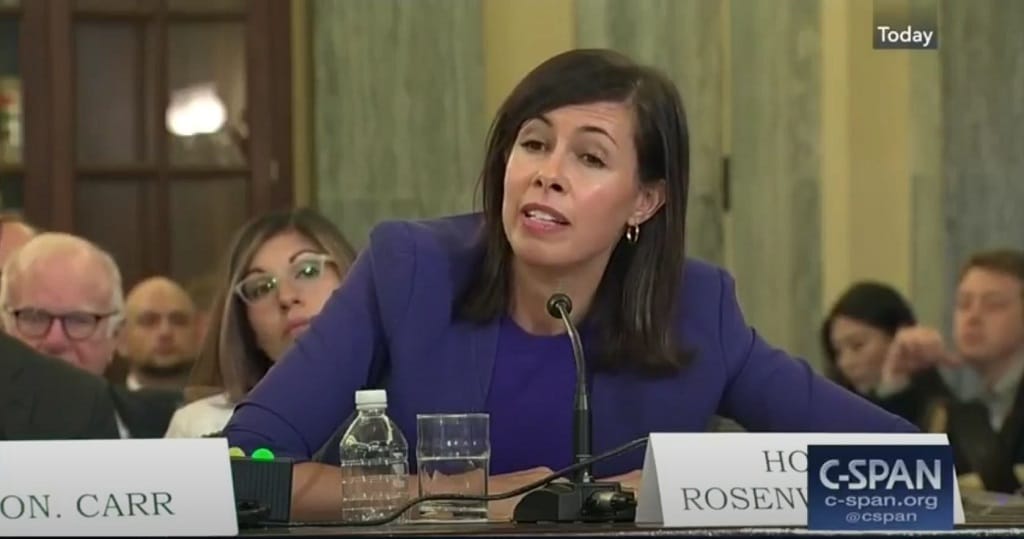FCC Chairwoman Rosenworcel Proposes ‘Ringless Voicemail’ Restrictions
The measure would restrict unwanted voicemails appearing in consumers’ inboxes.
Justin Perkins

Screenshot of FCC Chairwoman Jessica Rosenworcel at a 2018 Senate Hearing
WASHINGTON, February 3, 2022 — Federal Communications Commission Chairwoman Jessica Rosenworcel proposed Wednesday to prevent “ringless” voicemails.
If adopted by the Commission, the regulation would require callers to obtain a consumer’s consent before delivering a “ringless voicemail,” a message left in their mailbox without ringing their cell phone.
“Ringless voicemail can be annoying, invasive, and can lead to fraud like other robocalls–so it should face the same consumer protection rules,” said Rosenworcel. “No one wants to wade through voicemail spam messages because their mailbox is full.”
The chairwoman’s proposal argues against a petition by the robocalling company All About Message, which asserted that ringless voicemails are technically not “calls” and thus should not be protected under the TCPA.
The proposal comes as U.S. phones received more than 50 billion robocalls in 2021, said YouMail Robocall Index. The number is significantly higher than in 2020: 4 billion robocalls reached consumers according to the FCC’s estimate.
The commission’s fight against robocalls finds its authority under the Telephone Consumer Protection Act (TCPA), which prohibits unwanted robocalls. The law also prohibits any non-emergency call using an artificial or prerecorded voice to a telephone number without the prior express consent of the called party.
The FCC has made defeating robocallers and spoof callers a top agency priority in recent years. Rosenworcel continues this legacy, declaring that “this FCC action would continue to empower consumers to choose which parties they give permission to contact them.” The Chairwoman has said the agency “is not going to stop until we get robocallers, spoofers, and scammers off the line.”
Screenshot of FCC Chairwoman Jessica Rosenworcel at a 2018 Senate Hearing









Member discussion